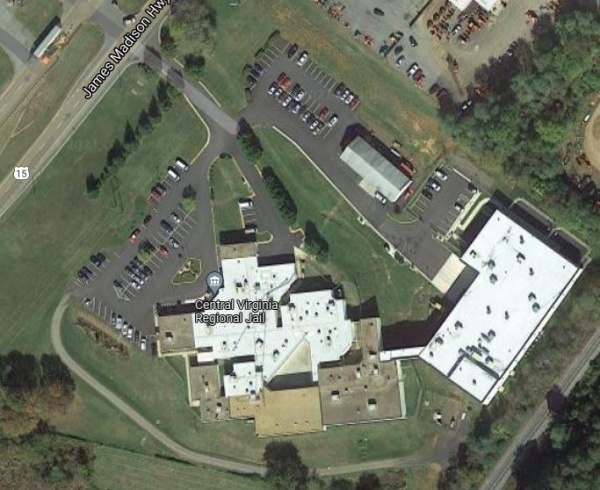
Can a 6-Year-Old Go to Jail in Virginia?
As a society that values justice and the welfare of children, the concept of incarcerating a mere six-year-old may seem unimaginable. Yet, the complexities of the juvenile justice system and the laws governing it can be nuanced. In this article, we delve into the legal framework surrounding this topic, examining whether a child as young as six can face imprisonment in the state of Virginia.
Before proceeding, it’s crucial to clarify that the juvenile justice system operates differently from the adult criminal justice system, emphasizing rehabilitation and age-appropriate interventions over incarceration. However, in rare and severe cases, children may be subject to secure confinement facilities.
The Age of Criminal Responsibility
In Virginia, as in many other jurisdictions, the age of criminal responsibility is set at seven years old. This means that children under the age of seven cannot be held legally responsible for their actions and cannot be charged with a crime. However, this does not imply that they are immune to consequences for their behavior.
When a child under the age of seven engages in unlawful conduct, they may be referred to Child Protective Services (CPS) or other social service agencies for guidance, support, and appropriate interventions. The focus is on providing rehabilitative services and ensuring the child’s well-being rather than punitive measures.
Exceptions to the Age Limit
While the age of criminal responsibility in Virginia is generally seven years old, there are certain exceptions where children under this age may be held accountable for their actions.
- First-Degree Murder: Children as young as six years old can be charged with first-degree murder in Virginia, which is considered a capital offense. This is the most serious crime a child can commit and carries the possibility of life in prison without parole.
- Felony Murder: A child under the age of seven may also be charged with felony murder if they participate in a felony that results in the death of another person. This applies even if the child did not directly cause the death.
Secure Confinement for Children Under Seven
In the rare cases where a child under the age of seven is charged with a crime, secure confinement may be an option if the court determines that traditional rehabilitative services are insufficient.
Secure confinement facilities for children are designed to provide a safe and structured environment where they can receive intensive treatment and education. The goal is to address the underlying issues that led to the child’s criminal behavior and to prepare them for successful reintegration into society.
Tips for Parents and Caregivers
As parents and caregivers, it’s essential to understand the juvenile justice system and the age of criminal responsibility in Virginia. Here are some tips to help guide you:
- Early Intervention: If you observe concerning behaviors in your child, seek professional help early on. Early intervention programs can help address potential issues and prevent more serious problems from developing.
- Positive Parenting: Establish clear boundaries and expectations for your child, while fostering a positive and supportive relationship. Children who feel loved and secure are less likely to engage in risky or harmful behaviors.
- Stay Informed: Keep yourself updated on laws and regulations related to child welfare and juvenile justice. This knowledge will empower you to make informed decisions and advocate for your child’s best interests.
Frequently Asked Questions
- Q: Can a 6-year-old be put in prison in Virginia?
A: Yes, but only for first-degree murder or felony murder with participation in a felony that results in death. - Q: What happens to children under seven who commit crimes?
A: They are typically referred to child protective services or social service agencies for guidance and support, with the focus on rehabilitation and well-being. - Q: Are juvenile detention centers the same as adult prisons?
A: No, juvenile detention centers are designed to provide a safe and structured environment for children, offering treatment, education, and support. - Q: Can parents be held responsible for their child’s criminal behavior?
A: Yes, in some cases, parents may be held liable if they knew or should have known about their child’s harmful behavior and failed to take appropriate action.
Conclusion
The question of whether a 6-year-old can go to jail in Virginia is a complex one that requires careful consideration of the age of criminal responsibility, the severity of the offense, and the availability of alternative interventions. While incarceration may be an option in rare and severe cases, it underscores the importance of early intervention, positive parenting, and a comprehensive approach to juvenile justice that prioritizes the well-being and rehabilitation of young individuals.
Are you interested in learning more about the juvenile justice system and child welfare laws in Virginia? Explore our website for additional resources and stay informed about updates and developments in these critical areas.

Image: www.youtube.com

Image: sonichu.com
Man charged with shooting 9-year-old boy, died in DC jail from ‘drug … Jan 9, 2023Police received the call that a teacher had been shot at 1:59 p.m., Drew said. When officers entered the classroom five minutes later, the boy was being restrained by a school employee, police